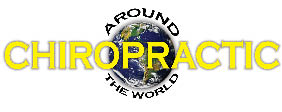
N.J. High Court to Hear Chiropractors’ Appeal
NEW JERSEY: The State Supreme Court has agreed to hear an appeal of a lower-court decision out of Ocean County, NJ, that has barred chiropractors statewide from performing procedures they had been doing for decades and are allowed to perform in the 49 other states.
Among cases posted in mid-October on the state Judiciary’s Web site that the state’s highest court has agreed to hear was one brought by patient Carol Bedford against chiropractors Anthony L. Riello and Peter E. Lowenstein and Coastal Chiropractic.
A decision in April by a panel of judges with the Appellate Division of state Superior Court ruled in the case that the state law governing chiropractic care limits chiropractors to performing adjustments of the spinal column. The ruling outlawed adjustments to extremities and other joints, which chiropractors had been doing for decades and are allowed to do in the 49 other states.
The decision is not only impacting the businesses of many of the state’s 2,500 chiropractors, but also is affecting their patients, who have come to rely on extremity adjustments but can no longer have the procedures done in the state, according to the Association of New Jersey Chiropractors (ANJC) .
Following the appellate court decision, the defendant chiropractors appealed, and the association filed a brief in support of the appeal. The Supreme Court, in late September, granted certification to hear the appeal.
Since the appellate decision, the association had collected signatures of more than 30,000 patients supporting the practice of extremity adjustments.
The ANJC has been addressing the lower-court ruling on two fronts: supporting the appeal and also lobbying to change the law to allow for extremity adjustments. A statute that would do that was passed in the Assembly on June 21, the Legislature’s last day in session before the summer break. But the Senate sent it to its Commerce Committee, where it still sits.
Asbury Park Press
Chiropractor Gets Jail Time for Not Filing Tax Returns
FLORIDA: A Vero Beach chiropractor was sentenced to eleven months in prison in late October after being convicted of failing to file income tax returns, according to the U.S. Attorney’s Office. Stephen J. Short Jr. was convicted after a three-day trial in July of four counts of willfully failing to file returns. Prosecutors said he didn’t file returns in 2000, 2002, 2003 and 2004 and earned an annual income between $87,000 and $124,000 during that time.
Short faced up to a year in prison on each count. After he completes the prison time, Short will spend one year on supervised release and U.S. District Judge Donald Graham ordered him to pay the Internal Revenue Service $47,000 in restitution.
TCPalm
From the “Different Strokes” Department….
GEORGIA: A Columbus chiropractor who pleaded guilty to not filing his income taxes received probation recently in federal court. Robert D. Ressmeyer, 68, was sentenced by U.S. District Court Judge Clay Land to three years probation on two counts of failure to file a federal income tax return. The chiropractor, who could have faced 12 to 18 months in prison, had pleaded guilty in June and remained free on bond.
“Your honor, I have no excuse that I can render for the situation I got myself into,” Ressmeyer told the judge. “I apologize for the grief I got my family into. My fervent prayer is that I be allowed to continue my practice.”
Ressmeyer was accused of not filing a federal tax return for the years 2000 and 2002 on $163,335 and $176,145 in annual incomes, respectively. The government contends that the operator of Ressmeyer Chiropractic Life Center hadn’t filed a return since 1997, and Ressmeyer agreed in his plea agreement that he didn’t pay $152,084 in taxes between 1998 and 2003.
Ressmeyer’s attorney, Richard Childs, said his client’s failure to file taxes started out small and could have been corrected in the beginning. However, the problem grew until it reached the point of a guilty plea and sentencing in federal court.
“He’s a good man who did a bad thing,” Childs said.
Childs estimated that Ressmeyer owes between $250,000-$300,000 in back taxes and interest.
Explaining that federal sentencing guidelines called for 12 to 18 months in prison, Land said that would be inconsistent with the goals of sentencing.
Prison time, Land said, wouldn’t protect the public or impose a healthy respect for the law.
Assistant U.S. Attorney George Christian said he would speak with tax authorities before deciding whether to appeal the sentence.
